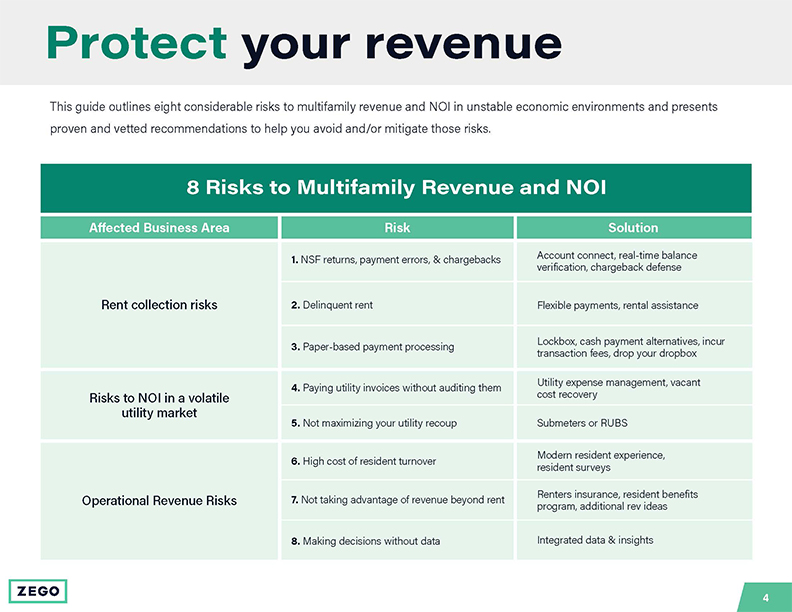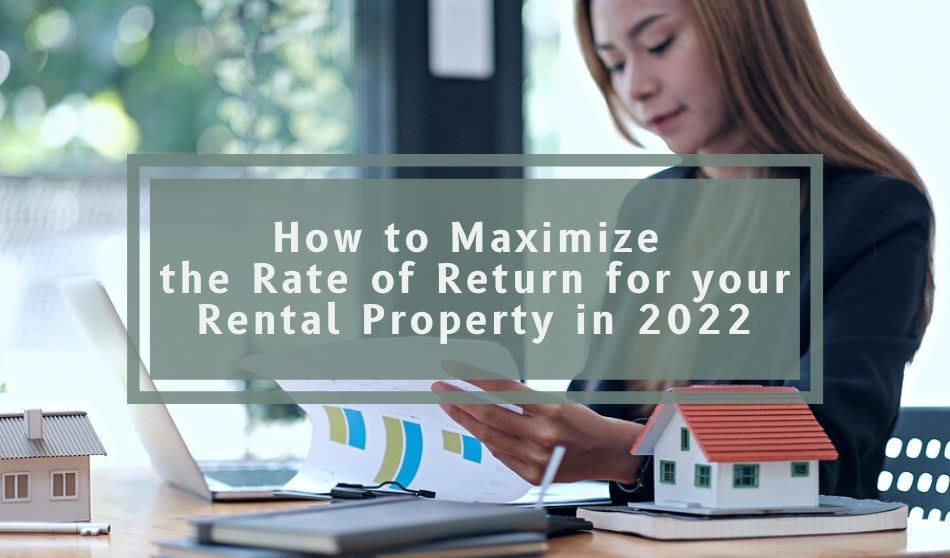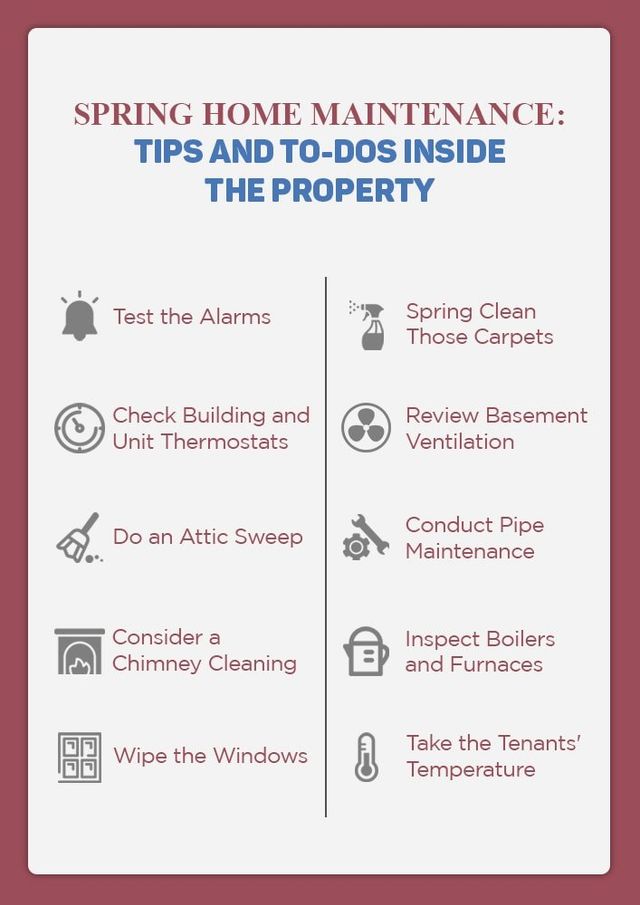Unlock the secrets to maximizing your rental property returns with these expert management tips for increased profits and success.

Image courtesy of George Becker via Pexels
Table of Contents
Introduction to Rental Management
In the world of real estate, rental management plays a crucial role in ensuring properties are well-taken care of and generate optimal returns. Whether you own multiple rental units or manage properties for others, understanding how to manage a rental property effectively is essential.
What is Rental Management?
Rental management is the process of overseeing and maintaining rental properties to ensure they run smoothly and efficiently. It involves handling tasks such as finding tenants, collecting rent, addressing maintenance issues, and ensuring legal compliance. Essentially, rental management is about taking care of all aspects of a rental property to keep both tenants and property owners happy.
Why Manage Your Property Well?
Managing a rental property well can lead to a host of benefits for property owners and tenants alike. By being proactive and attentive to the needs of tenants, property managers can improve tenant satisfaction, reduce turnover, and ultimately increase rental income. Additionally, effective management can help protect the property from damage and ensure legal compliance, reducing the risk of costly lawsuits or penalties.
Understanding Your Tenants
When you own rental property, your tenants are a crucial aspect of successful property management. Understanding who your tenants are and recognizing their needs can significantly impact your management strategies. Let’s dive into why knowing your tenants is so important.
Communicating with Tenants
Good communication with your tenants can foster a positive relationship and prevent misunderstandings. Be clear and respectful in your communication, whether through written notices, emails, or in-person conversations. Listening to your tenants’ concerns and feedback is essential for a harmonious landlord-tenant relationship.
Meeting Tenant Needs
By understanding what your tenants need and want, you can create a space where they feel happy and satisfied. Addressing maintenance issues promptly, providing necessary amenities, and being responsive to requests can lead to longer tenancies and less turnover. Happy tenants are more likely to take care of your property and renew their leases, ultimately benefiting your rental income.
Optimizing Rental Income
When it comes to managing a rental property, one of the key goals for property owners is to maximize their rental income. By following some simple strategies, you can ensure that your property is generating a good return on investment.

Image courtesy of via Google Images
Setting the Right Rent
Setting the right rent for your property is crucial to maximizing your rental income. If your rent is too high, you may struggle to find tenants, leading to vacancies that can eat into your profits. On the other hand, if your rent is too low, you may not be realizing the full potential of your property’s value. Conducting market research to determine comparable rents in your area can help you set a competitive price that attracts tenants while maximizing your income.
Reducing Vacancy Rates
Reducing vacancy rates is another key strategy for optimizing rental income. An empty property means no income, so it’s important to minimize vacancies as much as possible. Offering incentives to attract new tenants, maintaining good relationships with current tenants to encourage lease renewals, and ensuring prompt turnover of units are all effective ways to keep your property rented out and cash flowing.
Routine Maintenance and Inspections
In rental management, it’s crucial to keep your property in top shape to ensure tenant satisfaction and protect your investment. By conducting regular maintenance and inspections, you can prevent major issues from arising and address any problems promptly. Let’s explore the importance of routine maintenance and inspections in managing rentals effectively.
Regular Maintenance Schedule
Having a well-defined maintenance schedule is key to preventing costly repairs down the line. Regular tasks such as checking HVAC systems, inspecting plumbing for leaks, and servicing appliances can help keep your property in good condition. By staying proactive with maintenance, you can address minor issues before they escalate into significant problems.
Performing Inspections
Inspections are essential for identifying any potential issues with your property. Whether it’s conducting move-in, move-out, or periodic inspections, these checks help ensure that your property meets safety standards and remains in good condition. Regular inspections also provide an opportunity to address any tenant concerns and maintain open communication.
Dealing with Problems Efficiently
Dealing with maintenance problems promptly is crucial to keep your rental property in top shape and your tenants happy. Whenever an issue arises, here’s a step-by-step approach you can follow:

Image courtesy of via Google Images
1. Listen to the tenant’s concern and determine the severity of the problem.
2. Assess whether it’s a quick fix that you can handle yourself or if you need to call in a professional.
3. Communicate with the tenant about the timeline for repairs and keep them updated throughout the process.
4. Once the problem is resolved, perform a follow-up to ensure the tenant is satisfied with the outcome.
Tenant Complaints
tenant complaints are inevitable in rental management, but how you handle them can make a big difference in tenant satisfaction. Here’s a fair and effective process for addressing tenant complaints:
1. Listen to the complaint attentively and try to understand the tenant’s perspective.
2. Acknowledge the issue and assure the tenant that you will look into it promptly.
3. Investigate the complaint thoroughly and work towards finding a resolution.
4. Communicate the steps you’re taking to address the complaint and follow up with the tenant once it’s resolved.
By handling maintenance issues and tenant complaints efficiently, you can maintain a positive relationship with your tenants and safeguard the condition of your rental property.
Keeping Records and Legal Compliance
In the world of rental management, keeping thorough records and ensuring legal compliance are critical aspects that every property owner or manager must prioritize. By maintaining organized records and following the law, you not only protect yourself but also safeguard your property and maintain a positive relationship with tenants.
| Tips | Description |
|---|---|
| Set Competitive Rent Prices | Research the rental market in your area to ensure your prices are competitive and attract tenants. |
| Maintain Property | Regularly inspect and maintain your property to keep it in good condition, increasing its value and attracting quality tenants. |
| Screen Tenants Thoroughly | Perform background and credit checks on potential tenants to ensure they are reliable and will pay rent on time. |
| Provide Excellent Customer Service | Respond promptly to tenant inquiries and address any concerns or issues they may have to keep them satisfied and renew their lease. |
| Implement Lease Renewals | Offer incentives for tenants to renew their leases, reducing turnover and vacancy rates. |
| Invest in Property Upgrades | Upgrade amenities and features in your property to attract higher-paying tenants and increase rental income. |
| Stay Informed on Rental Laws | Keep up to date on rental laws and regulations to avoid legal issues and protect your investment. |
Importance of Record-Keeping
Record-keeping is like creating a history book for your property. By documenting all essential information, from lease agreements to maintenance requests, you have a clear record of all activities related to your rental. These records can be invaluable in case of disputes with tenants, ensuring you have evidence to support your position. Additionally, accurate records help you track your financials, monitor maintenance schedules, and comply with legal requirements.
Staying Legally Compliant
When managing a rental property, it’s crucial to abide by all relevant laws and regulations. These laws cover various aspects of rental management, such as tenant rights, fair housing practices, eviction procedures, and property safety standards. By staying legally compliant, you not only avoid penalties and lawsuits but also create a safe and welcoming environment for your tenants. Familiarize yourself with the laws that apply to your location and seek legal advice if you have any doubts about your obligations as a property manager.
Managing Finances
In rental management, taking care of the financial aspects is crucial to the success of your property. From collecting rent to budgeting for expenses, managing finances effectively can ensure smooth operations and optimal returns.

Image courtesy of via Google Images
Collecting Rent
One of the most important tasks as a property manager is collecting rent from tenants. It’s essential to establish clear and consistent payment methods and due dates to avoid late payments or confusion. Communicate payment expectations upfront and provide convenient options for tenants, such as online payment portals or direct deposits. If issues with rent collection arise, address them promptly and work with tenants to find a solution that works for both parties.
Budgeting for Expenses
Creating a comprehensive budget is key to managing your rental property’s finances effectively. Start by identifying your regular expenses, such as mortgage payments, insurance premiums, property taxes, maintenance costs, and utilities. Factor in potential vacancies and unexpected repairs by setting aside a contingency fund. Track your expenses regularly and adjust your budget as needed to ensure you’re prepared for any financial challenges that may arise. By planning ahead and managing your expenses wisely, you can protect your investment and maximize your rental income.
Hiring Help When Needed
In some cases, managing a rental property can become overwhelming, and it’s okay to seek help from professionals. Knowing when to hire outside help can make a big difference in the success of your rental management efforts.
Choosing the Right Contractors
When it comes to maintenance and repairs, finding the right contractors is crucial. Look for professionals who are licensed, experienced, and reliable. Ask for recommendations from other property owners or check online reviews to ensure you’re hiring the best people for the job.
Benefits of a Property Management Company
If the responsibilities of managing your rental property are getting too demanding, consider hiring a property management company. These companies can handle everything from finding tenants to collecting rent to handling maintenance issues. By outsourcing these tasks, you can save time and ensure that your property is well taken care of.
Using Technology for Management
Property management software is like having a virtual assistant to help you keep track of your rental properties. These programs can help you organize tenant information, schedule maintenance tasks, and track rental payments. With just a few clicks, you can access important data and monitor the overall performance of your properties.

Image courtesy of via Google Images
Online Rent Collection
Gone are the days of knocking on doors to collect rent! online rent collection platforms make it easy for tenants to pay their rent securely from the comfort of their homes. This not only saves you time but also ensures timely payments. Additionally, you can set up automatic reminders for tenants to pay, reducing the chances of missed payments.
Conclusion: Key Takeaways
In conclusion, effective rental property management is crucial for maximizing returns and ensuring a successful investment. By following the tips and advice outlined in this article, property owners and managers can optimize rental income, keep tenants happy, and maintain their properties in good condition. Here are the key takeaways to remember:
– Communication with tenants is key to building positive relationships and addressing issues promptly.
– Setting the right rent price ensures a balance between attracting tenants and maximizing profits.
– Regular maintenance and inspections help prevent costly repairs and maintain property value.
– Handling problems efficiently and staying legally compliant are essential for a smooth rental management process.
– Managing finances responsibly, including collecting rent on time and budgeting for expenses, is crucial for long-term success.
– Hiring help when needed, such as contractors or property management companies, can save time and ensure quality work.
– Utilizing technology, like property management software and online rent collection, can streamline processes and increase efficiency.
By implementing these strategies and staying proactive in managing rental properties, property owners can expect higher returns and a more sustainable investment portfolio. Remember, proper rental management is the key to success in the real estate industry.
FAQs
What are the top strategies for managing a rental property more effectively?
Managing a rental property effectively requires a combination of strategies to ensure smooth operations and happy tenants. Some top tips include setting the right rent price, reducing vacancy rates, maintaining a regular maintenance schedule, addressing tenant needs, handling problems efficiently, staying legally compliant, managing finances wisely, hiring help when needed, and utilizing technology for management.
How can landlords increase their rental income?
Landlords can increase their rental income by following a few simple steps. Setting the right rent price is crucial – not too high to drive away tenants, and not too low to cover expenses. Reducing vacancy rates by keeping the property rented out as much as possible ensures a steady stream of income. Additionally, budgeting for expenses and saving for unexpected ones can help maximize profits. Utilizing technology for online rent collection and property management software can also streamline processes and improve efficiency.
Idaho Poperty Management
